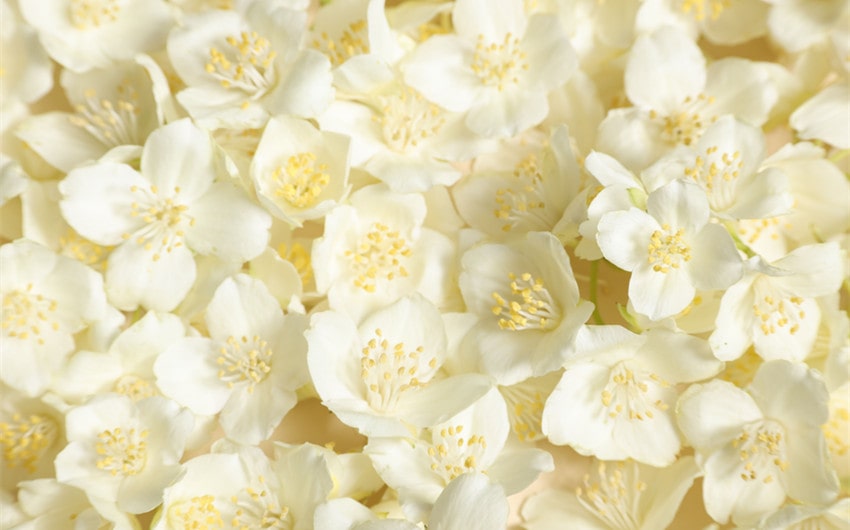Jasmine Name Meaning in the Bible and Its Spiritual Symbolism
Have you ever wondered about the Jasmine name meaning in the Bible and what makes it such a gentle yet powerful symbol of faith? Though the name Jasmine does not appear directly in the Bible, its beauty and fragrance represent many qualities celebrated throughout Scripture—purity, love, and divine grace. The jasmine flower has long been admired for its delicate scent and elegant white petals, and its symbolic associations fit beautifully within Christian teachings. Understanding the spiritual meaning behind the name Jasmine reveals how it embodies the virtues of inner beauty, humility, and faithfulness, much like the people and imagery honored in Biblical stories.
The Origin and Meaning of the Name Jasmine
The name Jasmine finds its roots in the Persian word “Yasmin” (یاسمن), which means “gift from God” or “fragrant flower.” This origin alone makes the name spiritually profound—something that connects nature’s beauty to divine blessing. Over time, the name spread through Arabic, Hebrew, and European languages, taking on variations such as Yasmina, Jasmin, or Jessamine.
The Jasmine flower itself carries deep symbolic meaning. Known for its pure white color and soothing fragrance, it has come to represent purity, grace, and love—qualities that align closely with Christian ideals. Just as the flower blooms quietly but radiates beauty and fragrance, the name Jasmine symbolizes humility and a heart that brings peace to others.
In the context of faith, this connection between a flower and virtue is not accidental. Nature in the Bible often mirrors divine truth. The beauty of creation reflects the Creator’s goodness, and every flower that blooms becomes a small reminder of God’s artistry. The name Jasmine, therefore, captures this same spiritual reflection—something beautiful, life-giving, and pure, like God’s grace flowing through creation.
In addition to its aesthetic charm, the name’s original Persian meaning, “gift from God,” resonates with the Biblical concept that every good thing in life is divinely given. As stated in James 1:17, “Every good and perfect gift is from above, coming down from the Father of the heavenly lights.” In this way, Jasmine can also symbolize gratitude, recognizing life itself as a divine gift.
Is the Name Jasmine Found in the Bible?
The name Jasmine is not directly mentioned in any version of the Bible. However, the symbolism associated with the jasmine flower appears in many Biblical passages through other floral and fragrant imagery. Flowers are often used throughout Scripture to convey ideas of divine love, purity, and the fleeting nature of earthly life.
For example, Song of Solomon 2:1-2 beautifully compares the beloved’s beauty to that of flowers: “I am the rose of Sharon, the lily of the valleys. Like a lily among thorns is my darling among the young women.” While jasmine itself is not named, this imagery of delicate, fragrant flowers echoes the same themes of purity, love, and spiritual devotion that Jasmine represents.
Jesus also used flowers to teach lessons about faith and trust. In Matthew 6:28-29, He said, “Consider the lilies of the field, how they grow; they toil not, neither do they spin, and yet I say to you that even Solomon in all his glory was not arrayed like one of these.” This verse reminds believers that beauty and provision come from God’s care, not human striving. The message behind this verse aligns perfectly with the symbolic meaning of the jasmine flower—grace and beauty that flow naturally from God’s creation.
Although Jasmine is not a name found in Scripture, its meaning and associations easily fit within Biblical themes. Its fragrance and purity mirror the spiritual qualities that the Bible encourages: gentleness, love, and a heart open to God’s guidance. So while the name itself isn’t listed among Biblical figures, it holds a symbolic “Biblical spirit”—a representation of virtues found throughout the Word of God.
Biblical Symbolism of Flowers and Fragrance
In Scripture, flowers and fragrance often symbolize life, holiness, and divine favor. The Bible uses these natural elements to describe God’s creation, His care for humanity, and the beauty of a righteous life. For instance, Isaiah 40:8 says, “The grass withers, the flower fades, but the word of our God stands forever.” Here, the temporary beauty of flowers serves as a contrast to God’s eternal truth, reminding believers that while earthly life is fleeting, God’s word endures eternally.
Flowers are also used to describe human virtue and the blossoming of faith. Psalm 103:15-17 compares human life to the flourishing and fading of flowers, teaching humility and the importance of seeking spiritual strength that lasts beyond the material world. The jasmine flower’s short but fragrant bloom mirrors this same idea: beauty and grace that shine brightly for a time but leave a lasting impression.
The concept of fragrance also appears frequently in the Bible as a metaphor for faith and righteousness. Ephesians 5:2 states, “Walk in the way of love, just as Christ loved us and gave himself up for us as a fragrant offering and sacrifice to God.” Similarly, 2 Corinthians 2:15 says, “For we are to God the pleasing aroma of Christ among those who are being saved.” These verses use the imagery of fragrance to represent goodness, love, and spiritual devotion—the very essence of what jasmine symbolizes.
When you think of the sweet scent of jasmine flowers filling the air, it’s easy to see how it parallels the Biblical idea of faith spreading goodness and love in the world. Just as fragrance cannot be contained, true faith radiates outward, touching others with peace and grace.
Spiritual Meaning of the Name Jasmine in a Biblical Context
While Jasmine is not a Biblical name, it carries deep spiritual meaning when viewed through the lens of Scripture. The traits associated with the jasmine flower—purity, beauty, gentleness, and resilience—mirror many of the virtues praised throughout the Bible.
-
Purity and Innocence: The white jasmine flower symbolizes moral purity and a clean heart. This echoes Matthew 5:8, which says, “Blessed are the pure in heart, for they shall see God.” A person named Jasmine can be seen as someone who strives for spiritual purity and lives with sincerity.
-
Love and Grace: The sweet fragrance of jasmine reflects the love and kindness described in 1 Corinthians 13:4: “Love is patient, love is kind. It does not envy, it does not boast.” This association makes Jasmine a name representing compassion and humility.
-
Faith and Renewal: Jasmine often blooms at night, a trait that gives it powerful symbolism—faith that shines even in darkness. This connects beautifully to Psalm 46:5, “God is within her, she will not fall; God will help her at break of day.” Like the flower, faith persists through trials, quietly revealing God’s light.
In Biblical symbolism, flowers are often seen as reflections of God’s creation and His relationship with humankind. The jasmine flower’s ability to bloom in unexpected places, its modest size, and its enduring fragrance all serve as reminders of divine grace and faith that endures despite challenges.
When you choose or reflect on the name Jasmine, you embrace more than just its beauty—you embrace its message. The name symbolizes a heart rooted in faith, spreading love like fragrance and living in purity as a testament to divine grace.







